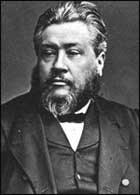Grace and peace of the Lord Jesus Christ to y'all!
We've been having such blessed times at our Bible Study group, taking up Paul's letter to the Romans. Here's a summary of what we've covered so far. Please let me know of any insights, comments and suggestions that will help our group have a better understanding of this profoundly impactful epistle. Kindly pray that the Holy Spirit leads more people to and through this wonderful book.
Many thanks and God bless!
The PBC Blacktown Care Group's Study on the Book of ROMANS
Author: Paul
- Romans 1:1; Style and theological viewpoint very similar to other letters attributed to Paul (Galatians, 1 and 2 Corinthians)
- Probably written while he was in Corinth, Greece; as guest of Gaius (Rom 16:23) who was a prominent church leader in Corinth (1Cor 1:14); around 57ad, before Great Roman Fire of 64ad, during reign of Nero.
Intended Audience: Christians in Rome
- Ethnically, culturally diverse Gentile (non-Jewish) and Jewish converts
- Most probably first received the Gospel during Feast of Pentecost (Acts 2:10)
- Most have never met Paul personally, but may have heard of him as former Saul of Tarsus; most may have heard of his conversion (Acts 9), apostleship (sending out), missionary journeys and church planting (from Acts 13 to 18?); most may have heard other people’s rumors about him and his teachings (Romans 3:8)
Reasons for writing:
- Paul wanted to introduce himself in preparation for his intended visit to Rome
- Paul wanted to make clear his position regarding the Gospel and help the Roman Christians have a clearer understanding of the subject of Salvation (or “Soteriology,” from Greek sōtērion, meaning deliverance; sōtēr, meaning savior; saos, sōs, meaning safe)
- Paul wanted the diverse Christians in Rome to be united in their understanding and teaching of God’s Gospel, and together lead Gospel-Driven lives.
- Paul wanted to help build up the Roman churches in understanding their faith, so that they may be better able to help him spread the true Gospel, towards Spain (Rom 15:28)
SUMMARY/HIGHLIGHTS
The Good News, The Bad News, The Best News Ever (chapters 1-11)
ROMANS 1: Paul introduces himself and the Gospel (Good News) regarding Jesus Christ, the Son of God who became son of man: seed of David (God incarnate=God in the flesh), declared as God the Son by his resurrection from the dead, “through Him and for his name’s sake, we have received grace …”
Paul writes of his longing to visit the Roman Christians and preach them this Gospel “for it is the power of God for salvation of everyone who believes.” (The Good News is not just for unbelievers, but also for those who already believe.) People need the Gospel because “God’s wrath is being revealed… against all the godlessness…”
We value the things that God created, more than we value God the creator. There is no excuse...
ROMANS 2: God’s wrath is justified. We are all sinners, unable to measure up to God’s standards. God’s judgment is “based on truth.” Outwardly trying to observe (Jewish) laws and traditions (such as circumcision) is commendable and may result in being praised by others, but it is not enough to appease God’s wrath.
ROMANS 3: There is nothing that we can do (there’s nothing that can come from us) that will make us right with God, but that is no excuse to go on sinning. So “now a righteousness from God, apart from the law, has been made known… this righteousness from God comes through faith in Jesus Christ to all who believe.” God presented Christ as a sacrifice for atonement. (This is the only sacrifice that truly appeases God’s wrath and results in reconciliation with Him).
ROMANS 4: (For those who still insist on obeying Jewish traditions to be right with God,) Paul cites Abraham as an example (since the tradition of circumcision started with Abraham in Genesis 17): “Abraham’s faith was credited to him as righteousness” even before he was circumcised (Gen. 15:6). Circumcision was a sign of his righteousness, not the cause of it: Righteousness comes by faith to those who believe in Him who justifies the ungodly. Even King David himself, the man after God’s own heart, believed that it is God who imputes righteousness apart from works (in Psalm 32:1-2). (The signs of righteousness then follow.)
ROMANS 5: “Therefore, since we have been justified through faith, we have peace with God through our Lord Jesus Christ” and all of this, God did “while we were still sinners.” This is the reason for us to rejoice, even in suffering: suffering and death reigned as a result of Adam’s trespass, yet “how much more will those who receive God’s abundant provision of grace and the gift of righteousness reign in life through” Jesus Christ.
ROMANS 6: “Shall we go on sinning…? By no means!” We used to be slaves to sin, but now, we “have been set free from sin and have become slaves to righteousness… slaves to God.” (Note the distinction: we have not been saved from death, so that we can continue to sin if we want, but rather) We have been saved from sin, which leads to death: “For the wages of sin is death, but the gift of God is eternal life in Christ Jesus our Lord.” (A gift is not earned or deserved, it is by grace!)
ROMANS 7: We are no longer controlled by the sinful or carnal nature, so we now struggle or wage war against it. Who will rescue us “from this body of death” that we struggle against? (Ourselves? Our own will-power? What is Paul’s own answer?)
“Thanks be to God—through Jesus Christ our Lord!”
ROMANS 8: “Therefore there is now no condemnation for those who are in Christ Jesus” because Christ himself assures victory. Those who are not in Christ will continue in their sinful nature (just as we used to). They are hostile to God (just as we were). Their minds do “not submit to God’s law, nor can” they do so, unless the Holy Spirit sets them free from sin (as He did with us).
ROMANS 9: But then what about God’s promises to the Jews? (Of everlasting salvation; to be God’s very own people; to be a royal priesthood; the promises of a Messiah, The Christ?) Have God’s word failed? No. The promises still stand; God’s word never fails! But we must remember that the promises were never made merely to the biological/natural descendants of Abraham. The promises were made to those whom God chose to adopt into His family. The Israelites who pursued righteousness with zeal by working, stumbled; while the Gentiles, who were not pursuing righteousness, obtained it by the gift of faith.
ROMANS 10: In spite of Paul’s desire for Israel to be saved, in spite of Israel’s zeal for God, Israel “did not know the righteousness that comes from God and sought to establish their own…” And so, did not submit to God’s righteousness. Israel cannot claim that they have not believed because they did not hear, or because no one was sent to preach to them: “Did they not hear? Of course they did…” But concerning Israel, God says, “All day long I have held out my hands to a disobedient and obstinate people.”
ROMANS 11: Has God totally rejected Israel? By no means! Even so then at this present time there is a remnant according to the election of grace. And if by grace, then it is no longer of works; otherwise grace is no longer grace. Now Paul warns the Gentiles against looking down on the Israelites, because it is into their family that they have been graciously grafted into.
The hardening of Israel is for the glory of God: “And so all Israel will be saved, as it is written: The deliverer will come from Zion; he will turn godlessness away from Jacob. And this is my covenant with them, when I take away their sins.” (Israel, nor anyone else for that matter, will not be able to say that it was their zeal or faithfulness that caused God to save them.)
“Oh, the depth of the riches of the wisdom and knowledge of God!
How unsearchable his judgments, and his paths beyond tracing out!
Who has known the mind of the Lord? Or who has been his counselor?
Who has ever given to God that God should repay him?
For from him and through him and to him are all things.
To him be the glory forever! Amen.”
The Gospel-Driven Life (from Romans chapter 12, onwards)
ROMANS 12: As a result of God's gracious work in our lives then, we ought to offer our bodies as living sacrifices to Him as an act of worship (“worth-ship”); being transformed by the renewing of our minds. We need to recognise Christ’s church as being one body with many different parts—many different gifts. We are to zealously exercise our individual gifts; sharing the life that God has given us in sincere love, joy and humility, in both good times and bad; overcoming evil with good, because “Vengeance is mine; I will repay, saith the Lord” (KJV).
ROMANS 13: Teaches us to recognize God’s sovereignty over earthly governments and the Christians’ obligation to authorities; how love fulfills the commandments; exhorts us not to waste time on carnal desires.
ROMANS 14: Tells us that those who are strong in the faith and those who are weak are to be united in Christ. Before we judge one another, remember that God is the judge of us all. We should build each other up in Christ, and avoid making each other stumble.
ROMANS 15: Those who are strong must selflessly help to build up the weak. Jesus did not make it a priority to please himself, so neither should we. God gives us endurance and encouragement through His word—may He grant us harmony, so that we can all together glorify Him.
Paul acknowledges Christ’s accomplishments in his ministry of preaching the Gospel “where Christ was not known.” This is why he plans to preach in Spain, visiting Rome on his way there. Paul urges the Roman Christians to pray for him and his plans to visit them and to know them personally.
ROMANS 16: Paul commends his fellow workers to the Roman churches: these are his beloved brothers and sisters in Christ (each with various backgrounds, chosen to be of service to God in Rome). Paul urges the churches to keep away from those who cause divisions by teaching erroneous doctrine: “Be wise about what is good, and innocent about what is evil,” for “The God of peace will soon crush Satan” (the father of lies) “under your feet.”
Paul’s other companions send also their greetings to the Romans. Paul closes in praise of the Eternal Almighty All-Knowing God:
“Now to Him who is able to establish you by my gospel and the proclamation of Jesus Christ, according to the revelation of the mystery hidden for long ages past, but now revealed and made known through the prophetic writings by the command of the eternal God, so that all nations might believe and obey Him—to the only wise God be glory forever through Jesus Christ! Amen”
RECOMMENDED HOMEWORK (as the Spirit leads):
From what we have been learning in Romans, what do you think are the most essential things that Christians need to proclaim, about:
GOD?
MAN?
SIN?
JUDGMENT?
JESUS CHRIST?
The HOLY SPIRIT?
The Appropriate RESPONSE?
(Bonus points for citing passages in Romans to support your statements for all of the above!)





